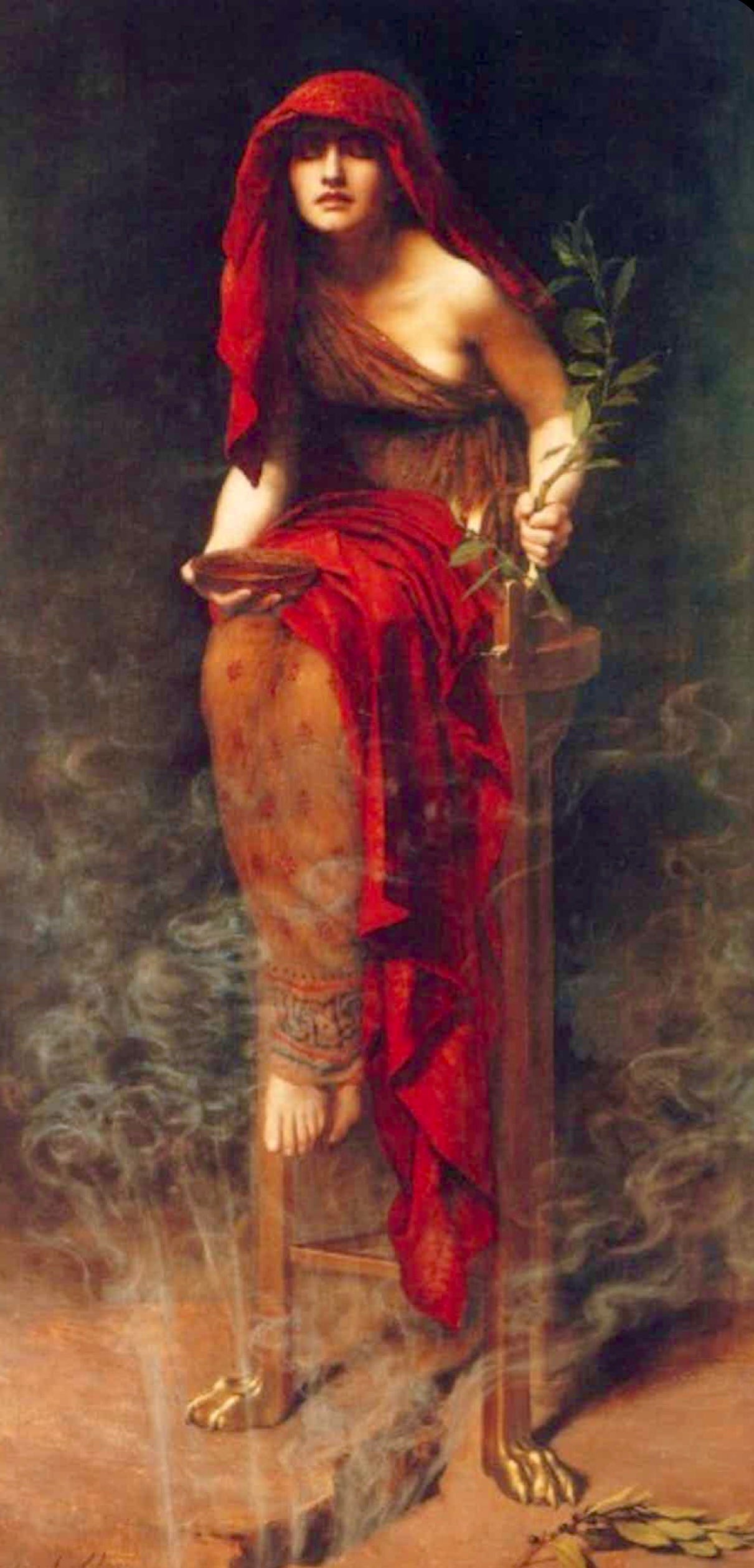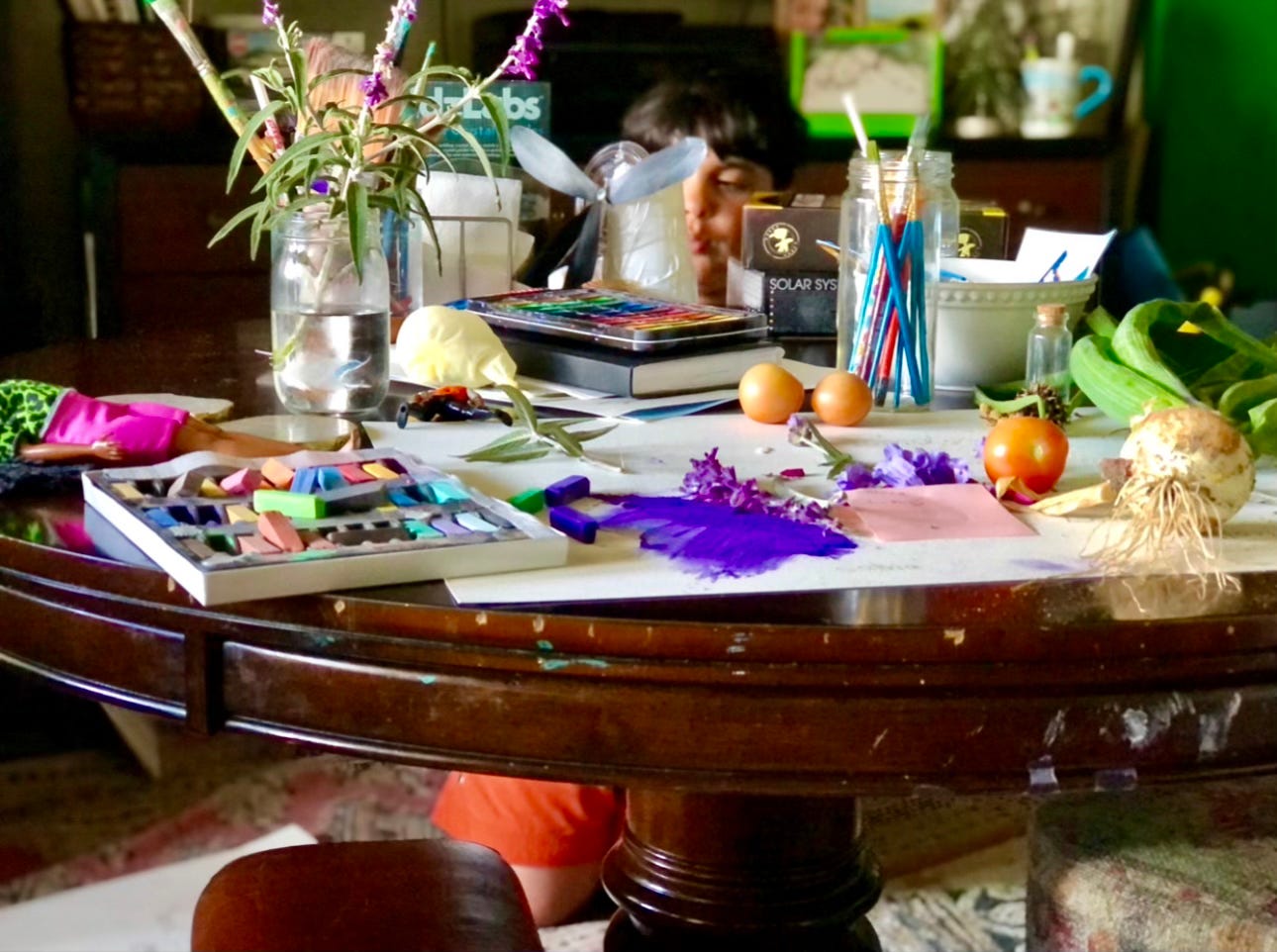Sheer and utter exhaustion. That’s how I stumbled into the most beautiful stretch of prayer I’ve ever experienced — through sheer and utter exhaustion.
It was around 4 pm, and I had spent the entire day swept up in the tide of domestic duties, peppered with the perennial caretaking that comes with being a mother to an Autistic child. Hour after hour, something needed sorting, cleaning, organizing, and putting away. The cooking needed doing, and mouths required feeding. The kitchen now needed tidying up. A small meltdown. More laundry. At this point, my nerves and body felt like taut, tired wires on a dilapidated guitar. If anyone or anything else plucked at me for my attention, I would surely snap…like an instrument that no longer holds the memory of music, where any touch feels like noise.
…my nerves and body felt like taut, tired wires on a dilapidated guitar. If anyone or anything else plucked at me for my attention, I would surely snap…like an instrument that no longer holds the memory of music, where any touch feels like noise.
And so I sank into my seat at the kitchen table. “Just for a moment,” I thought. “I’ll just sit here for a moment,” perching my elbows on the table and covering my face with my hands. I couldn’t tell you why I did that. There was nothing and no one to hide from. I suppose I just needed the darkness for a moment. Maybe, subconsciously, it was a practice I picked up from my 13-year-old, who has spent most of the last year with his eyes closed, shutting out the outer world.
And that’s when it began — the most beautiful prayer…
In Islamic prayer — the kind of prayer ritual I grew up with — worship begins with sobriety. You wash up, cover your hair, and step on the prayer mat with intention. You repeat prescribed prayers before casting your prayer wishes. This was nothing like that.
I felt grimy, my body sticky with the sweat of labor. Wavy wisps of hair sprouted out of my head like tufts of wild nasturtiums. Nothing was rehearsed. This was raw submission, and it began with the place where traditional prayer ended: the asking.
“Show me what I need,” I asked into the dark.
Connecting with the Dark — what I call the other eye of God — while in shambles with no regard for the orchestration of clocks and prayer times…does, at large, make me a pretty terrible Muslim (if other people’s standards measure terribleness). And yet, I have learned more about the heart of Islam — its message of submission — through the badlands of what it means to be a woman. Or at least — what my experience of being a woman has been like so far: devoid of authentic community and saturated in isolation through circumstance.
Many times over the years, you have to figure things out on your own. When you’re often on your own, and there’s no one coming to help, when asking usually falls on deaf ears, sooner or later, you realize that it’s all just too much. You get tired of trying to figure things out, of holding on to it all. You can’t mentally maneuver your way out of every situation; some things just are. And over the years, you get tired. So tired — the tired only a parent fully caretaking for an Autistic child can ever know. And so you surrender. You submit your will and wiles at the threshold of prayer. “Here, I give this to you. I can’t do this anymore.”
Through the experience of writing The Song of the Human Heart, I genuinely believe that Islam is an invitation to let go. Everything else around it, the distortions, have become noise that makes what was harmonic, now taut and strained, ready to snap.
On my altar space is a wooden bowl in the shape of two open hands. It’s a divine reciprocity, a symbolic giving and a receiving with the sacred, where that language of flow can take shape. Within the open palms, I place what I am offering and what I am asking. There’s a statue of a storyteller; I am asking for wisdom to be able to tell the stories I am writing and to be able to hold the vibrational note like an instrument in harmony. There’s a pair of stone eyes, one of moonstone and one of obsidian, symbolizing the two eyes of God; I am asking for divine sight. There’s a puzzle piece symbolizing both Autism and the Mystery I find myself in; I am placing both in Her trust. There are tiny pink roses and rose oil; an offering of feminine beauty, a symbol of layers of reality, and a nod to the oldest religious talisman, the rosary. And there is a gold coin; I am asking for abundance and enrichment for a smoother journey.
The stranger life gets — as I think we’re all finding in recent times with compounding heartbreak over world events — the easier it becomes to surrender if we have been in the practice of surrender. I recently learned that I may have my own heart-break. The other night, I felt a sudden movement in my heart, like a baby in the womb stretching for space. An EKG showed there may be an issue with electrical signals getting through. A few days later, I placed a rose quartz stone in the shape of a heart; I am offering my heart. There’s nothing more I can do lifestyle-wise; it’s in God’s hands now.
There’s wisdom in surrender. I wouldn’t have understood the practice of surrender if the first half of life had come easily, if it had been a charmed life. There’s a profound blessing in that. At least, that is the story of the first 44 years of life. Maybe things were hard by design; perhaps that’s what it took to get me to surrender. Maybe The Song of the Human Heart — re-imagining Islam as a seed faith to be buried in the mythological Dark — an exquisitely revolutionary idea, would never have been possible until I became an instrument attuned to the hand of God. (Actually, that’s not a question of maybe. If life had been charmed and easy early on, I know I would have been lost in the material. Like so many others, the only thing I would have ever mastered worshipping is myself.)
Maybe The Song of the Human Heart
— re-imagining Islam as a seed faith to be buried in the mythological Dark —
an exquisitely revolutionary idea, would never have been possible until I became
an instrument attuned to the hand of God.
So I sat there at the kitchen table. The kitchen table — the phrase you often only hear during presidential election cycles where the out-of-touch rehearse anecdotes to appear relatable to the masses. That’s the only time in America you hear of the “kitchen table.”
And what exactly is the story of the kitchen table? Aren’t the stories we’re told all stories of woe, of counting our beans, of trying to study our fate across a deck of bills and receipts like novices stumbling through a tarot of misery, of seeing if we can survive into next month? The opposite of surrender. The opposite of mastery.
What was once a place of gathering commons — a place of tending — has become a place of complexity and calculation. And when it’s not that, it’s the stage for the rehearsal of being a family. Funny, isn't it, how the rehearsal of prayer, of people bobbing up and down on a prayer mat, isn’t that different from other kinds of rehearsed behaviors replicating the sacred, replicating gathering? Isn’t it noteworthy to observe how a space reserved for a special gathering is something we have to get through now, disconnected from each other just as much as we’re disconnected from ourselves — whether that is communal prayer or the proverbial awkward family dinner? Maybe I’m not as isolated as it may appear; perhaps we all are.
While things are slowly changing for me, and the story of hardship seems over, I still cling to the peace I found during those days in isolation. In isolation, I found solitude. In solitude, I found my voice. Through my voice, I found God.
Show me what I need, I ask….. sitting, elbows propped on the table, palms covering my eyes. Before me, on the round wood table, lay a few belongings: glasses, yellow tapered candles, and a cup of tea. Behind me, the walls held images of an array of Paleolithic goddesses — a 40,000-year history of when worship was rooted in a regenerative vision of life rather than hierarchy. And all around me was a silver silence… an unspoken, unbroken quiet. This space became a temple, and I was entering holy terrain where something needed to be covered, but it was not my hair — it was my eyes. (The dark and holy eye is the central theme of my upcoming book, The Song of the Mystery, and I dive deeper into how Islamic culture and theology have misunderstood the message of the veil.)
With a veil of palms, I entered a holyscape that came alive in the darkness behind my eyes. I saw a rhythmic wave of images, one becoming another. A sunlit stained glass with figures coming to life, Mother Mary (revered in Islam) in a stream of illustrious movement that peels away from the stoicism she is usually framed in. The visions continued for twenty minutes, maybe more, and I was lost in them. At some point, the pain in my body, the tightness in my back and hips, eased into a dripping golden honey warming my body. The tension in my shoulders lifted into a lightness I hadn’t felt in decades. And suddenly, I wasn’t tired or over-stimulated by the day-to-day chaos. It was as if I had been restored, made whole…brought back into my senses.
Maybe that’s what I needed—to come back to my senses, not only in that moment but also in what it means to be whole and holy within the mundane. Maybe I needed a restoration of the sacred at the lost temple of the divine feminine through a soft heart and a wild-honey eye rich with visions of the Mother. Maybe something else I haven’t quite found the language for yet. All I know is that I remember what it felt like to surrender in prayer, and now I’m ruined for any other charade of ritual prayer.
If “all the world is a stage and we are its actors,” as the phrase goes, then let me exit the stage. Let me be neither actor nor audience. Let my eyes gaze into the darkness to see what it dreams of.
You May Also Like…
The Gift of the Stranger at the Door
On autistic children, angels, other multidimensional beings, and the thresholds they help us cross. [Read]
A Religion that Matters is Not a Religion of Matter
From an Islam of beards and robes toward an Islam of light and dark. [Read]
Yawanawa Tribe's Song Rituals Expands Belonging in Faith
Podcast | Mapping a feminine Islam that is fluid and interplays with all elements of life, especially the vibrational reality of sound. [Read]






Beautiful Shireen.
Thankyou for sharing this. The power of surrender … when we finally stop trying to be in control, and open ourselves to the power of God.
I believe your divine feminine voice can speak healing into the world - not only into the patriarchal world of Islam but into the rest of our fractured society too. The world needs to hear it because voices of domination and power - the opposites of surrender and divine feminine - have driven things for too long.